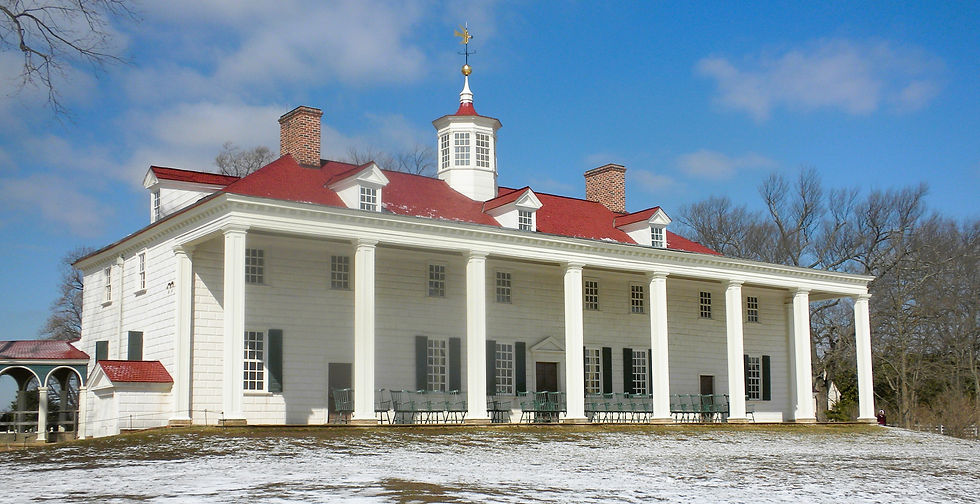Gratitude Friday 6-16-23 – Reuniting a House Divided
- Bill Stauffer

- Jun 16, 2023
- 4 min read
"A house divided against itself, cannot stand. I believe this government cannot endure permanently half slave and half free. I do not expect the Union to be dissolved — I do not expect the house to fall — but I do expect it will cease to be divided. It will become all one thing or all the other.” – Abraham Lincoln June 16th, 1858

On June 16th, in 1858 in front of 1,000 delegates in Springfield, Illinois, after being nominated as the candidate to run against for Congress against Stephen A. Douglas, Abraham Lincoln delivered what is now known as his House Divided Speech. The full text of the speech is here. He was using the moment to distinguish himself from his opponent. The speech largely centered on Missouri's Dred Scott Case, 1846-1857. In its 1857 decision, the United States Supreme Court upheld slavery in United States territories, denied the legality of black citizenship in America, and declared what was known as the Missouri Compromise to be unconstitutional. It is considered by legal scholars to be the worst decision ever made by our highest court. In the House Divided speech, Lincoln asserted in the speech that the situation was untenable and threatened the unity of our nation. A brave action by a relatively unknown candidate.
When we reflect back at that moment, 165 years ago today, our future as a nation was very much in doubt. The country was deeply divided. The Civil War and the Reconstruction Era unfolded over the next two decades was. It is a decidedly calamitous chapter in our relatively short history as a young nation. We learned a sanitized version of events as children. The North prevailed and we remain united. History is almost never so tidy. It was all quite uncertain and the wound, created at our inception is still with us
So what am I grateful for in reflection? The House Divided speech is a demonstrable example of an effort to take on a difficult and divisive issue as part of our representative form of government. Lincoln was facing a powerful incumbent and he decided to run on the most contentious issue we ever have faced. He raised the issue nationally in what is considered some of the most influential discourse in our history, the Lincoln–Douglas debates. It failed, he lost. Lincoln was defeated by Douglas in the general election. One may say that the Lincoln campaign was misguided. Perhaps if he had run on a safer issue he would have been elected to office. We should be grateful he did not.
He went on to win election to be our 16th president, in no small part because he has demonstrated that he was a leader by taking on slavery. He served until his assassination on April 15, 1865. Had he lived, it is possible we would have made more lasting gains in respect to reconstruction, but that is unknowable from where we sit in history. I am by no means an expert on Lincoln, but he was clearly our greatest president, yet he also ran afoul of our governance. He led through our darkest hour. He was nearly assassinated on his way to take the oath of office in Baltimore. He made strategic errors. In our current era, all we seem to do is focus on all the flaws.
The safest course of action in our current era is to be a critic. To drag people down. We have become a nation of trolls. We all get pulled down as a result. When do we lift each other up? How low can we go and stay united?
We are also on the eve of Juneteenth which celebrates the moment when Union General Gordon Granger issued General Order No. 3, which enforced the Emancipation Proclamation to the residents of Texas and freed all remaining slaves in the state. It was not the end of slavery, but it was a moment of hope and a clear sign of the shifting tide.
The Gratitude Friday reflection today is that often, success is preceded by failure and is born on an uncertain road. Had Lincoln not stood up for his convictions, the course of American history would have been a lot different. He did. He lost. Then he won. Then he preserved our union. A lesson in courage and leadership. In the end, at least from my perspective it is not what we try and fail at that we regret in the end, it is the things we fail to try. What if Lincoln had failed to try?
I am grateful for Abraham Lincoln. We can look back on his words. They resonate in respect to challenges we still face. We tend to see history too simply. The issues that face humanity are never quite settled. Things shift through history like a desert in a windstorm. We live in challenging times. We can look at Lincoln and honor a man who acted on his convictions and retained our union. In difficult times, we should consider such moments like the one that happened 165 years ago today in Illinois. A backwoods orator who was not widely considered a leader, stood up on a divisive issue and went on to preserve our union.
What will we do with similar challenges and opportunities we face as a people? One of the reasons that Lincoln succeeded was that he was an optimist in respect to our nation. He bet the house that we could be held together. As a patriotic American, I am grateful for that. He won, and we are here as a result. Let’s be optimists and keep what those who came before us preserved.
What are you grateful for today?










Comments